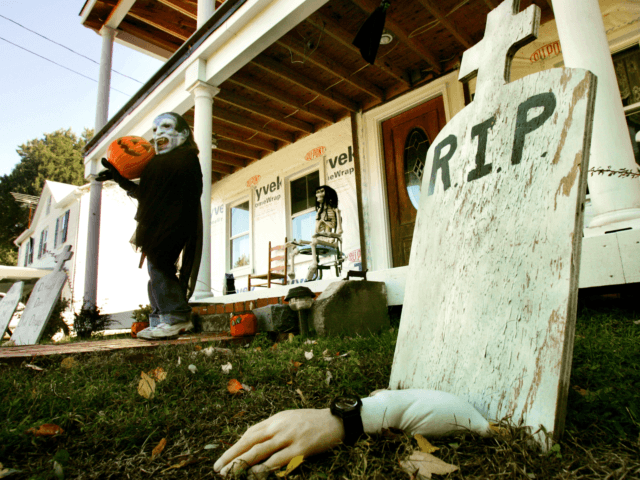In preparation for Halloween, the National Theatre of Scotland (NTS) has announced that it will not be using the word “spooky” as it has been used previously as a racial slur in the United States.
The word was last used by Scotland’s state-funded arts company in a 2016 promotion for a production of A Christmas Carol. While the National Theatre of Scotland admitted that there were no complaints about the use of “spooky”, they decided to ban the word to pre-empt any possible offence.
A source within the NTS said per the Scottish Daily Record: “There’s been a lot of training and meetings since the BLM movement and how NTS should change.
“It might seem mad but NTS is committed to fighting racism so need to be extra careful in the language it uses.”
The source went on to not that the theatre company has traditionally been a “really white organisation”, which is something the leadership hopes to rectify.
“There might not be many people who know that ’spooky’ can also be used as racist but, even if it’s one person who is offended, it’s one person too many,” the source said.
According to the Online Etymology Dictionary, the word derives from the 19th century Middle Dutch ‘spooc’ for ghost. The phrase has commonly been associated with Halloween.
A later meaning of the word came to describe “undercover agents”, dating back as far as 1942. The use of the phrase was famously used as the title of the BBC’s long-running MI5 spy programme Spooks.
The word emerged around the same time as a racial slur in the United States to describe black people. Interestingly, the black World War II pilots who trained at the Tuskegee Institute jokingly referred to themselves as the “Spookwaffe” in an ironic twist on the slur.
While the use of spook as a racial slur was never adopted in the UK, the NTS said that it is “committed to fighting racism” so therefore it “needs to be extra careful in the language it uses.”
Scotland: Robert the Bruce Statue Vandalised with 'BLM', 'Racist King' Slogans https://t.co/kDpamIzuRZ
— Breitbart London (@BreitbartLondon) June 14, 2020
Elsewhere in Scotland, the National Library (NLS) is planning on removing supposedly offensive terms such as “slave” and “plantation” in order to conform with modern political correctness. The terms are set to be replaced with “enslaved person” and “forced labour plantation”.
Justifying the move to decolonise the Library’s collection, Edinburgh and Cambridge graduate Carissa Chew told The Scotsman: “There is a need to review catalogues, websites and learning resources that use discriminatory terms to describe groups with protected characteristics because this contributes to a culture of oppression in which these people are made to feel like second-class citizens.
“If you choose to replicate the racist, sexist, homophobic, and ableist language of the colonial past, it sends a message to marginalised groups that you don’t respect their self-identities and their equal status as human beings.”
Chew, who is a postgraduate candidate at University of Hawaii, said the Black Lives Matter movement forced institutions such as the National Library to “examine their own roles in the upholding of white privilege”.
Following the death of George Floyd in America, leftists at institutions throughout Scotland have launched BLM-inspired iconoclastic attacks on British heritage.
In 2020, for example, the University of Edinburgh removed the name of Scottish Enlightenment philosopher David Hume — who was considered to be a progressive thinker in the 18th century — from one of its buildings over his now-outdated political beliefs.
Not to be outdone, Scotland’s oldest public museum, the University of Glasgow’s Hunterian Museum, said in February that it would be hiring a “curator of discomfort” to highlight historical and modern “white supremacy”.
Grave of ‘Father of Capitalism’ Adam Smith Targeted by BLM-Inspired Slavery Review https://t.co/5ObLRwr1EH
— Breitbart London (@BreitbartLondon) March 7, 2021
Follow Kurt Zindulka on Twitter here @KurtZindulka

COMMENTS
Please let us know if you're having issues with commenting.